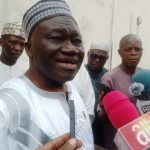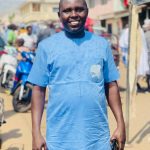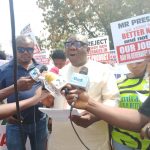Tinubu’s Nigeria: A Time to Lead, Not Campaign
By Dr. Aiyeku Olufemi Samuel
Governance Analyst | Development Economist | Strategic Policy Consultant
Introduction
As Nigeria battles its way through multiple socioeconomic pressures, the question on the lips of many is not about 2027—it’s about whether the promises of 2023 will materialize.
Should President Bola Ahmed Tinubu focus on securing a second term or salvaging a country spiraling into deeper poverty, insecurity, and distrust?
The urgency of now must outweigh the politics of tomorrow.
Should a leader be remembered for winning elections or for winning the people’s hearts with visible progress?
Can true change be built while preparing for the next campaign rally?
“Leadership is not about the next election, it’s about the next generation.”
– Simon Sinek
The Scorecard So Far: A Mixed Bag of Promise and Pain
Tinubu’s administration began with economic surgery:
Fuel subsidy removal (May 29, 2023): This led to petrol prices jumping from ₦185 to over ₦617 per litre. As of June 2024, food inflation has risen to 40.66%, according to the National Bureau of Statistics (NBS).
Exchange rate unification: The naira has dropped from ₦460/$ to over ₦1,400/$ in the parallel market in under a year. Businesses are gasping; over 7,000 SMEs reportedly shut down in 2023 due to foreign exchange pressures and import costs.
Poverty levels rising: According to World Bank estimates (December 2023), over 104 million Nigerians now live in multidimensional poverty, up from 95 million in 2022.
Where He Has Done Well
Digital economy push and the Nigerian Startup Act have gained traction.
The Student Loan Act was passed to reduce the burden on students (implementation, however, is still awaited).
Infrastructure project announcements continue, especially around roads and rails.
Renewed regional diplomacy with ECOWAS and global investors.
Where More Is Expected
Security: Nigeria recorded 5,135 conflict-related deaths in 2023 (ACLED data). Banditry, kidnapping, and farmer-herder crises continue unabated.
Education: With 20 million out-of-school children, Nigeria still holds the world’s highest number. Budget allocation to education in 2024 remains below the UNESCO-recommended 15–20% (Nigeria’s is approx. 7.9%).
Healthcare: Nigeria spends less than ₦5,000 per capita annually on health. Infant and maternal mortality rates remain among the highest in sub-Saharan Africa.
Public Sector Salaries: Civil servants’ minimum wage remains ₦30,000/month, while inflation has effectively made this amount less than $20 USD in value.
“You cannot build a nation with PR and policies that don’t reach the people. A hungry man hears no reform.”
~ Chinua Achebe
Lessons from Other Leaders
Nelson Mandela governed for one term but achieved national healing and democratic redefinition.
Lee Kuan Yew transformed Singapore by prioritizing infrastructure, civil service integrity, and education—not vote-winning tactics.
Paul Kagame rebuilt Rwanda’s shattered economy before he began discussions around extended leadership.
What Should Tinubu Focus On?
National Unity and Healing: Ethno-religious divides are widening; urgent peacebuilding and inclusive governance are needed.
Security Reform: Intelligence-led security over firepower. Rural Nigeria must be safe again for farmers and children.
Human Capital Development: Increase education and health funding from the current 7% to at least 15% of the national budget.
Local Government Autonomy: Rework fiscal federalism to allow grassroots development and community accountability.
Public Sector Digitization and Transparency: Publish FG project implementation scorecards every quarter.
Rural Infrastructure: More than 50% of Nigerians live in rural areas, most lacking electricity, safe roads, and healthcare access.
Is 2027 the Priority?
No. The priority is now.
The economy, security, and societal trust are at tipping points.
“Posterity rewards the leader who plants trees under whose shade he may never sit.”
~ John Maxwell
Good governance campaigns itself. Nigerians don’t want 2027 manifestos—they want 2024 progress.
Objective Critique
A government that insists on defending itself too often ends up doing little.
President Tinubu must listen more, act faster, and think beyond elections.
Let policy replace politics. Let empathy guide economic decisions.
Final Words
This is not about whether Tinubu can win 2027. It’s about whether Nigerians can survive to see it.
Inflation is real. Fear is real. Hunger is real.
Governance should be too.
“Let the work speak so loud that re-election becomes inevitable, not orchestrated.”
~ Dr. Aiyeku Olufemi Samuel
With Purpose and Responsibility,
Dr. Aiyeku Olufemi Samuel
Governance Analyst | Strategic Development Advocate | National Reorientation Advocate
aiyekuolufemi@gmail.com
#NigeriaDeservesBetter
#GovernanceBeyondElections
#TinubuScorecard
#FocusOnPeopleNotPolitics
#PolicyOverPR
#EconomicHealingNow
#DrAiyekuOlufemiSamuel
#FixBeforeCampaign
#LeadershipWithLegacy
#NigeriaMustWorkNow












